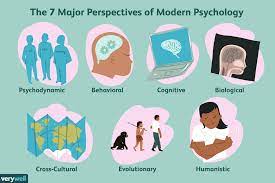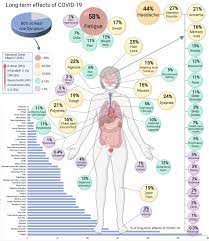The battle against tobacco addiction is a persistent struggle that spans health, societal, and personal dimensions. The phrase "Smokers Never Die" encapsulates the enduring challenge of overcoming tobacco addiction and the profound impact it has on individuals and society.
Health Impacts:
Tobacco addiction is a leading cause of preventable deaths worldwide. Smoking is linked to various health issues, including lung cancer, heart disease, respiratory problems, and a multitude of other cancers. Moreover, passive smoking affects not only smokers but also those around them, amplifying health risks for non-smokers.

Addiction Dynamics:
Nicotine, the primary addictive substance in tobacco, contributes to the challenging nature of quitting smoking. It alters brain chemistry, leading to physical dependence and psychological cravings that make quitting immensely difficult.

Socioeconomic Factors:
Tobacco addiction often intersects with socioeconomic disparities. It disproportionately affects marginalized communities, where tobacco companies historically target advertising, exacerbating health inequalities.

Psychological and Behavioral Aspects:
Smoking habits often intertwine with psychological and behavioral patterns. Stress, anxiety, and coping mechanisms contribute to the initiation and continuation of smoking behaviors, making cessation more complex.

Public Health Initiatives:
Governments, healthcare organizations, and non-profits continuously strive to curb tobacco addiction through various measures. These include public awareness campaigns, smoking cessation programs, taxation, and legislative efforts aimed at limiting tobacco advertising and access.
Quitting Challenges:
Quitting smoking is a multifaceted journey. It requires a combination of willpower, social support, access to resources like nicotine replacement therapies, counseling, and a conducive environment to successfully break the addiction cycle.
Technological Interventions:
Innovations like e-cigarettes and vaping were initially seen as potential harm reduction tools, but they come with their own set of controversies and health concerns, adding complexity to the landscape of tobacco addiction.
Global Impact:
Tobacco addiction is a global health concern, affecting diverse populations across cultures and nations. It requires collaborative efforts on an international scale to address issues related to production, distribution, and consumption.
Personal Stories and Support:
Personal narratives of individuals battling tobacco addiction underscore the challenges, triumphs, and setbacks experienced in quitting. Peer support groups and counseling offer invaluable assistance in navigating this journey.
Long-term Health Recovery:
Even after quitting, the health effects of tobacco can persist. However, the body also begins to heal. Lung function improves, cardiovascular risks decrease, and the overall health outlook enhances, highlighting the long-term benefits of quitting.
In summary, "Smokers Never Die" serves as a poignant reminder of the ongoing struggle against tobacco addiction. This battle involves complex health, social, and personal dynamics, necessitating comprehensive efforts encompassing public health initiatives, personal resilience, societal support, and a concerted global commitment to reduce and ultimately eradicate tobacco addiction's profound impact.
Certainly, here's a more detailed exploration of the multifaceted aspects related to tobacco addiction:
Marketing and Industry Influence:
The tobacco industry has historically employed aggressive marketing strategies to promote its products. From targeted advertising campaigns to sponsorship of events, these tactics aim to glamorize smoking and hook individuals from a young age.
Youth and Nicotine Addiction: Tobacco addiction often starts in adolescence. Exposure to peer influence, social acceptance of smoking, and the addictive nature of nicotine make young people particularly susceptible to developing long-term habits.
Health Disparities and Vulnerable Populations:
Tobacco addiction disproportionately affects certain demographics, including lower-income communities, individuals with mental health conditions, LGBTQ+ populations, and certain ethnic or racial groups. Addressing these disparities requires targeted interventions and support.
Dual Diagnosis and Mental Health:
There's a strong correlation between tobacco addiction and mental health disorders. Many individuals with mental health conditions use smoking as a coping mechanism, leading to a higher prevalence of smoking within this demographic.
Secondhand Smoke and Public Health:
Exposure to secondhand smoke poses significant health risks, particularly for non-smokers. Efforts to implement smoke-free policies in public spaces aim to protect the health of non-smokers and reduce overall tobacco consumption.
Global Health Challenges:
While efforts have reduced smoking rates in some regions, tobacco addiction remains a global health crisis, especially in low- and middle-income countries. Tackling this issue on a global scale involves addressing cultural norms, accessibility, and affordability of tobacco products.
Treatment and Cessation Support:
Various treatment options, including behavioral therapies, pharmacological aids, and support groups, are available to aid in smoking cessation. Tailored approaches considering individual needs and preferences are crucial for successful quitting.
Technology and Harm Reduction:
The emergence of alternative nicotine products, such as e-cigarettes, has sparked debates about their role in harm reduction. While they might assist some individuals in quitting traditional smoking, concerns about their safety and potential gateway effects for non-smokers persist.
Policy and Legislation:
Strong tobacco control policies, including taxation, plain packaging regulations, advertising restrictions, and comprehensive smoke-free laws, have been effective in reducing smoking rates in many countries. Continual advocacy for robust policies remains crucial.
Long-Term Health Effects and Recovery:
Despite the challenges, quitting smoking offers substantial health benefits. Over time, the risk of various diseases decreases, showcasing the importance of ongoing support for long-term abstinence.
In essence, the battle against tobacco addiction encompasses a broad spectrum of challenges, from industry tactics and health disparities to public health measures and personal struggles. Addressing this multifaceted issue requires a comprehensive, multi-level approach that considers societal, cultural, economic, and individual factors to effectively reduce tobacco use and its associated health burdens.



You must be logged in to post a comment.